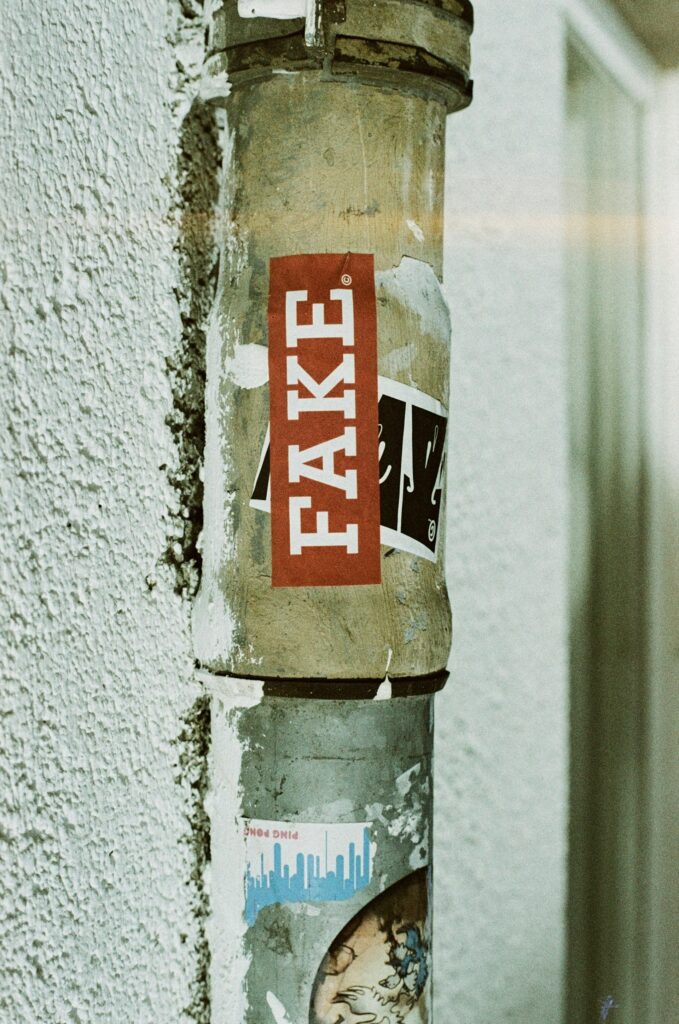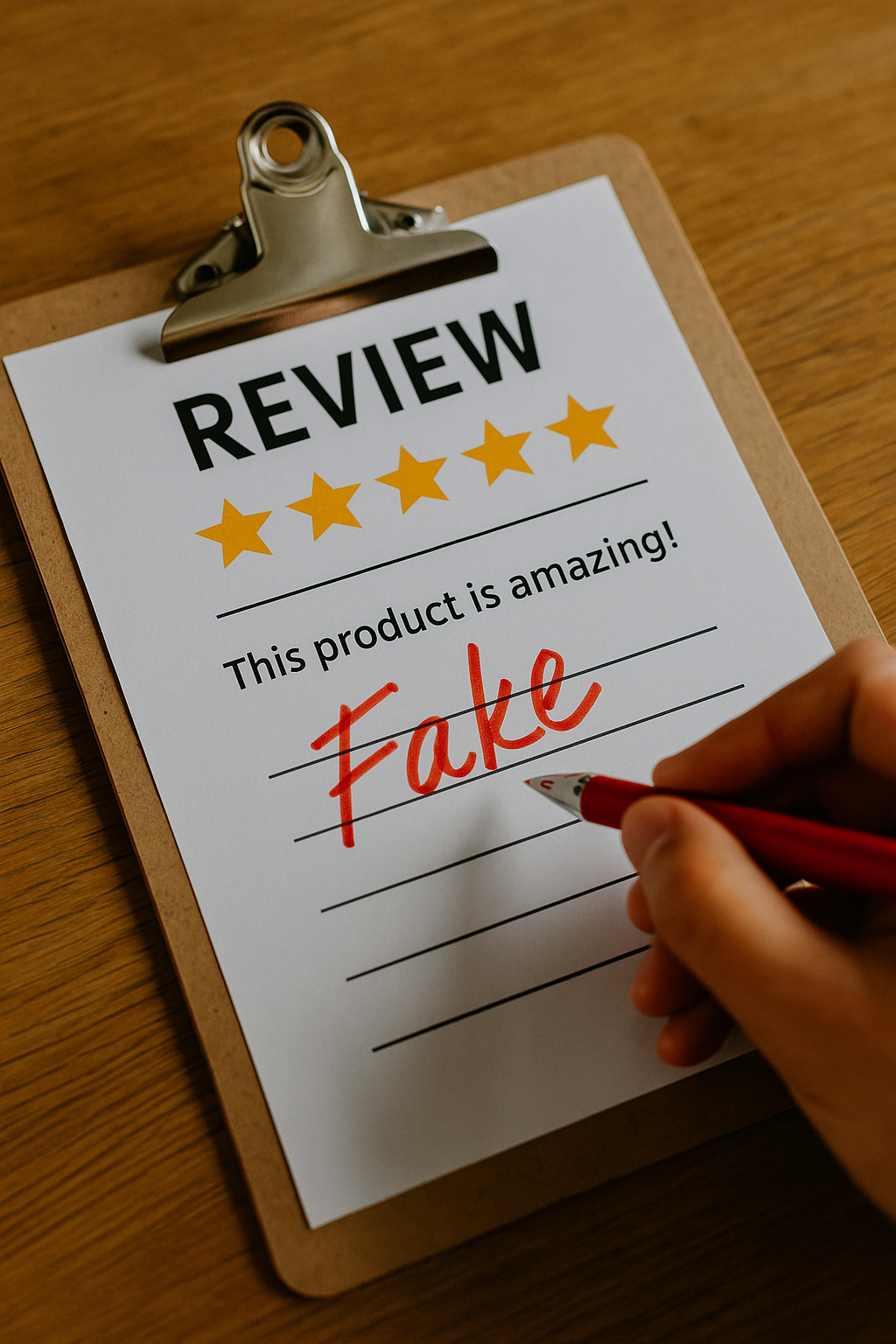On 25 July 2025, the Competition and Markets Authority (CMA) reported on its enforcement of new rules under the Digital Markets, Competition and Consumers Act 2024 (DMCCA), which ban fake or misleading consumer reviews and require businesses to prevent their publication. The rules came into force on 6 April 2025, with a three-month grace period for compliance.
After the grace period ended in early July, the CMA reviewed over 100 business websites. It found that more than half lacked a compliant policy on fake reviews or provided unclear, incomplete, or inaccessible information. The review also checked how businesses handle incentivised reviews, which are permitted if genuine and clearly labelled, or banned outright.
Non-compliant firms are being contacted and asked to confirm their compliance steps. To support businesses, the CMA will host a free webinar on the new rules on 4 September 2025.
The law bans fake reviews
The DMCCA makes it unlawful for businesses to create, solicit, or display fake reviews, or to mislead consumers through manipulated online ratings. This change addresses growing concerns about the integrity of online marketplaces and review platforms, where manipulated feedback has the potential to distort consumer choice and harm competition.
We have previously published a detailed overview of the DMCCA and the broader changes it brings to consumer law.
This blog focuses specifically on the ban on fake consumer reviews, what it means for businesses and how to stay compliant now that the CMA has begun enforcement.
What is a fake consumer review?
The DMCCA adopts a broad definition of a consumer review. In essence, any review that could influence a consumer’s decision to purchase a product or service – or to avoid one – qualifies. This means reviews can cover a wide range of topics, including but not limited to:
- The quality or performance of a product.
- The speed and reliability of delivery.
- The professionalism of customer service.
- The overall experience of engaging with a business.

A fake review is any review that falsely claims to reflect a real customer experience. For example, a glowing review from someone who never used the product or service would qualify as fake. Even a real customer’s review can cross the line if it was incentivised without clearly stating this fact.
If the content could reasonably be expected to influence a purchasing decision, it falls within the scope of the law. This is important because it captures situations where, for example, someone posts a review after sampling a free trial, or even when a business highlights quotes from social media that amount to endorsements.
Fake reviews can be positive or negative. Both distort competition and undermine consumer trust, making it harder for honest businesses to compete.
What is a concealed incentivised review?
A concealed incentivised review is a review that conceals the fact that it was incentivised (for example, it does not make it clear that the review was written in exchange for money or other benefits like a free stay at a hotel or another “freebie”).
Incentives can include money, discounts, freebies, early access or invitations to events.
If the benefit received is not made obvious (for example, through a visible #Ad tag), the review is considered to be concealing in nature, which is now prohibited under the DMCCA.
That said, general encouragement to leave a review (such as entering customers into a prize draw with no guaranteed reward) is unlikely to be considered commissioning in this context. The key distinction is whether the reviewer receives a direct personal benefit in return for writing the review.
In short, if your business offers any benefit in exchange for a review, you must be completely transparent about it. Hiding this information puts you at risk of enforcement action.
What practices are now prohibited?

Under the DMCCA, certain review-related practices are now classified as banned commercial practices. That means that engaging in them (whether directly or through third parties) is unlawful and can lead to enforcement action.
Specifically, reviews are prohibited if they are either fake or conceal the fact they were incentivised. However, is not just the act of writing or posting such reviews that is banned. The law also makes it illegal to commission, request or incentivise (without disclosing it) another person to create or submit them.
This includes:
- Submitting fake reviews (for example, endorsing a product or service never actually used).
- Posting concealed incentivised reviews (without a clear disclosure).
- Commissioning fake or concealed incentivised reviews (including instructing third parties to post them).
- Publishing reviews in a misleading way (cherry-picking only positive reviews while supressing negative reviews or presenting a manipulated average star rating).
- Failing to take action against fake reviews (businesses must take reasonable and proportionate action to detect and remove them).
- Offer or facilitate fake review services (for example, paying agencies to post or generate reviews).
Who must comply?
Any business that uses, displays or benefits from consumer reviews must comply. In the context of the DMCCA, such businesses are considered ‘publishers’.
This includes:
- Retailers and service providers displaying customer feedback on their websites.
- Businesses embedding third-party reviews, like Trustpilot or Google Reviews.
- Marketplaces and platforms hosting consumer ratings or testimonials.
These rules apply to anyone involved in the commercial use of reviews: from businesses and marketing agencies to influencers, journalists and freelance reviewers.
Practical steps for SMEs to stay compliant
The CMA has published guidance on banned review practices, which includes both fake reviews and concealed incentivised reviews.
For SMEs, compliance does not need to be daunting. Start with these practical steps:
1. Adopt a clear anti-fake review policy
This should be visible on your website and used in staff training
2. Conduct a risk assessment
See next section for how to do this and why it matters
3. Train your team and any marketing partners
Everyone should understand what is and is not allowed
4. Monitor your reviews regularly
Look for red flags like repetitive language or suspicious patterns
5. Act quickly
Remove fake or misleading reviews as soon as they are identified
6. Check third-party platforms
Even if reviews appear on external platforms, you are still responsible for what you display on your website

Prevention and removal policy
If you publish or display consumer reviews, the DMCCA requires you to take reasonable and proportionate steps to prevent and remove fake and misleading reviews. Official guidance on the DMCCA makes it clear that one of those steps is to have a clear policy in place to prevent and remove banned reviews. This policy should be written in plain English and easily accessible, ideally through visible links on your website or relevant documentation.
At a minimum, your policy should:
- Prohibit fake and misleading reviews
- Explain your approach to incentivised reviews
- Outline how you detect, investigate and remove banned reviews
- Detail how consumers can leave reviews and what is expected
Beyond having this policy on paper, businesses are expected to take reasonable and proportionate steps to assess the risk of banned and misleading reviews appearing on their platforms, regularly evaluate the effectiveness of their prevention and removal process and update or improve systems where weaknesses are identified.
Risk assessments
To comply with the DMCCA, publishers (as defined above) should also carry out simple risk assessments to identify where fake or misleading reviews could appear. This means looking at who can post reviews, how they are collected, whether incentives are offered and what moderation control is in place. Once you have identified the risks, take reasonable and proportionate steps to reduce them, based on your size, resources and risk exposure.
Finally, make sure you regularly revisit and update your assessment, especially when platforms, marketing practices or internal processes change.
Consequences of non-compliance
Failure to comply can lead to:
- Fines of up to £300,000 or 10% of global annual turnover, whichever is higher
- Public enforcement action, including your business being named in CMA reports
- Reputational damage, especially if customers feel misled
Final thoughts
This crackdown on fake reviews represents a major shift in UK consumer law. The goal is to foster a fairer marketplace – one that rewards honest businesses and protects consumers.
If your business relies on reviews – and most do – now is the time to act. Review your policies, train your staff, and ensure your systems are capable of preventing and removing banned content.
At EM Law, we help businesses stay compliant with the DMCCA. Whether you need help with drafting a review policy, conducting a risk assessment, training your staff or responding to a CMA inquiry, we are here to support you. Please contact Neil Williamson or Colin Lambertus for practical guidance on staying compliant or contact us here.





